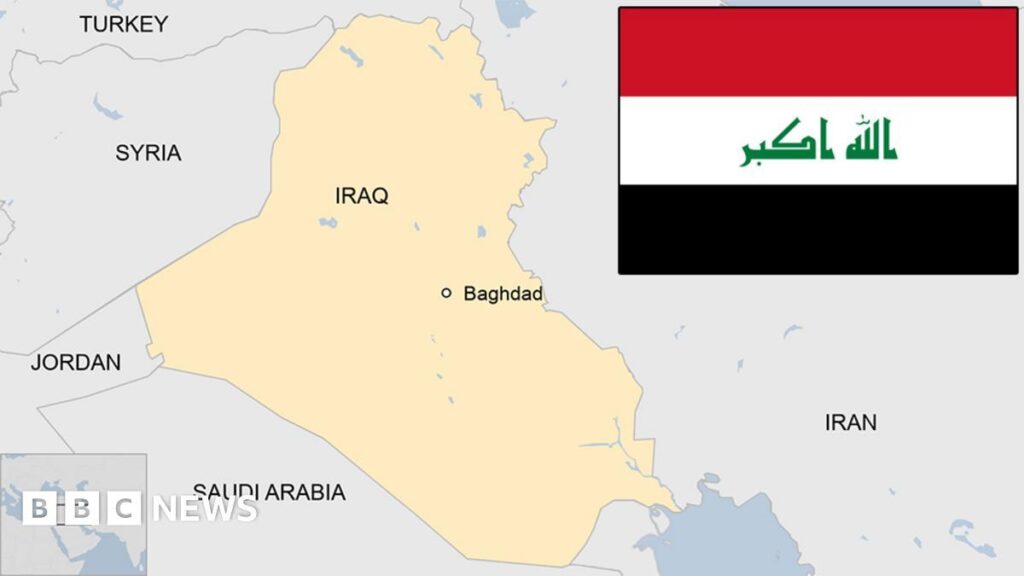Revitalizing Ties: Iraq and Saudi Arabia Reopen Land Border and Renew Air Connectivity
In a landmark move signaling improved relations, Iraq and Saudi Arabia have officially reopened their shared land border, reigniting cross-border travel and trade between the two nations. This reopening coincides with plans to restore direct air routes, underscoring a mutual commitment to deepen economic partnerships and diplomatic engagement in a region long marked by geopolitical complexities. The renewed accessibility through this critical border corridor promises to usher in an era of enhanced cooperation, stability, and growth after years of strained interactions.
Reopening the Land Border: A Catalyst for Economic Growth and Regional Security
The decision to reactivate the land crossing between Iraq and Saudi Arabia represents more than just logistical convenience—it is poised to transform regional commerce by reestablishing vital trade arteries that had been inactive for several years. By facilitating smoother transit of goods, services, and people across their frontier, both countries stand to benefit from expanded market access. Iraqi exporters can now tap into Saudi Arabia’s robust consumer base more effectively while Saudi businesses gain new opportunities within Iraqi markets.
This revitalization is expected not only to stimulate economic activity but also generate employment opportunities on both sides of the border. Local industries—from agriculture in southern Iraq to manufacturing hubs near Riyadh—could experience significant growth as supply chains become more integrated.
Beyond economics, reopening the border carries substantial security implications. Enhanced bilateral cooperation offers a platform for joint efforts against illicit activities such as smuggling networks or extremist movements that threaten regional stability. Improved intelligence sharing mechanisms are anticipated as part of this collaboration framework—potentially serving as a blueprint for other Middle Eastern neighbors seeking peace through partnership.
Resuming Air Travel: Strengthening Diplomatic Bonds Through Connectivity
The restoration of scheduled flights between key cities in Iraq and Saudi Arabia marks another pivotal step toward consolidating diplomatic relations while boosting economic exchanges. Direct air links will facilitate easier movement for business travelers, tourists, students, and expatriates alike—fostering deeper interpersonal connections alongside commercial ties.
- Bilateral Engagement: Regular flights encourage dialogue at multiple levels—from government officials coordinating policies to entrepreneurs exploring joint ventures.
- Eased Trade Logistics: Reduced transportation costs via air freight open new avenues for perishable goods like dates or pharmaceuticals reaching markets faster.
- Regional Stability: Increased people-to-people contact nurtures understanding that can help ease longstanding tensions across broader Middle Eastern geopolitics.
| Flight Route | Weekly Frequency | Main Benefit |
|---|---|---|
| Tikrit – Jeddah | 5 flights/week | Catering primarily to religious tourism during Hajj season |
| Mosul – Dammam | 3 flights/week | Aiding business travel amid growing industrial ties |
Nurturing Long-Term Cooperation: Strategic Steps Forward After Border Reopening
Sustaining momentum from these positive developments requires deliberate strategies focused on deepening trust through consistent dialogue at governmental levels. Establishing routine high-level summits will enable both countries’ leaders to align priorities around trade facilitation, cultural exchange programs, security coordination initiatives—and beyond.
An emphasis on fostering private sector collaboration is equally crucial; hosting joint investment forums or industry expos could unlock untapped potential within sectors such as energy technology or agribusiness where complementary strengths exist.
Additionally:
- Simplifying visa regulations would encourage tourism flows while promoting cultural understanding;
- Pursuing educational partnerships—including student exchange schemes—can build lasting interpersonal bonds;
- Cultivating healthcare collaborations may improve public health outcomes benefiting citizens region-wide;
- A concerted marketing effort highlighting historical landmarks like Najaf’s shrines or Diriyah’s heritage sites could attract global visitors eager for authentic experiences;
- Diversifying transport infrastructure investments (e.g., rail links) might further integrate economies beyond roadways alone.
The Road Ahead: Broader Implications for Middle East Stability & Prosperity
This renewed connectivity between Iraq and Saudi Arabia transcends bilateral interests—it holds promise as an exemplar model encouraging peaceful coexistence throughout the Arab world amid ongoing challenges.
According to recent data from the World Bank (2024), intra-regional trade among Gulf Cooperation Council members has increased by 12% since early 2023 following similar confidence-building measures elsewhere—a trend likely bolstered by this latest development.
As these two pivotal nations advance collaborative frameworks encompassing commerce diplomacy security education culture—they contribute meaningfully toward reshaping narratives about unity within diversity across one of today’s most strategically important regions.
Ultimately,their success may inspire neighboring states grappling with conflict legacies toward embracing dialogue-driven solutions prioritizing shared prosperity over division.
